In this day and age, any loved one is just a call away and the answer to any question can be found just in a matter of a few clicks. All of us want a trustworthy companion to help us in times of confusion. When you are living in a country where talking about your own body is a taboo, it can difficult to find answers or gain acceptance of your own body and self. We sit down today for a chat with Miss Saba Khalid who has succeeded in reaching out to girls all over Pakistan and has helped them have important conversations about their body and health through Raaji.
Raaji is a chatbot app available on the Google Play Store developed for girls and women in developing countries. Its main objective is to answer questions around taboo topics such as menstruation, pregnancy, abortion, STDs, depression, anxiety, consent and child abuse in an interactive manner. It is voice-enabled, infused with artificial intelligence and supported by human experts like gynaecologists and psychologists. The chatbot does not require the user to give out any personal information. The conversations too, remain private.
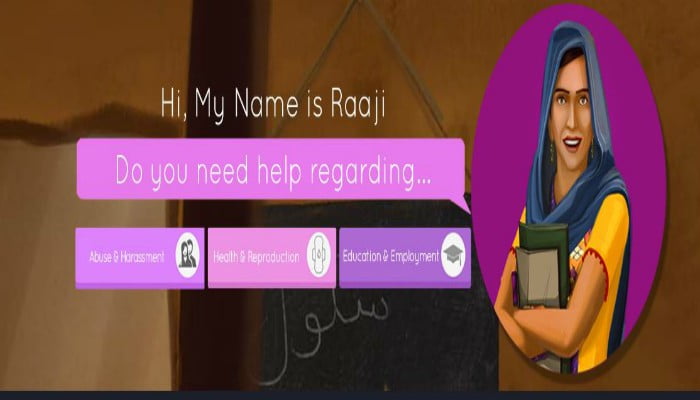
Avni Singh: Could you describe the process you went through developing this project?
Saba Khalid: Stepping into this domain was the hardest thing to do. And continues to be hard. I also am not a computer scientist or software engineer. I was extremely limited but was fortunate to have made such connections that I knew who to call upon to create our first version.
The idea came to us when we were conducting the mobile screening of our animated series in one of the most rural areas of Pakistan called Tharparkar, and we saw how curious the girls were to talk about issues like early marriages, starvation, lack of choices around their bodies. When our team left for Karachi, we realised we had sparked a conversation that we couldn’t continue long-term sustainably due to limited expertise and time. In moonshot thinking, I thought what if we could create something automated that girls could use 24/7 from anywhere. In a few days time and with excellent mentorship, from men and women alike, I extended the main character Raaji into a chatbot. Building this concept was not easy as this was a first in the market. So we learnt from all the failed conversations on how we could improve.
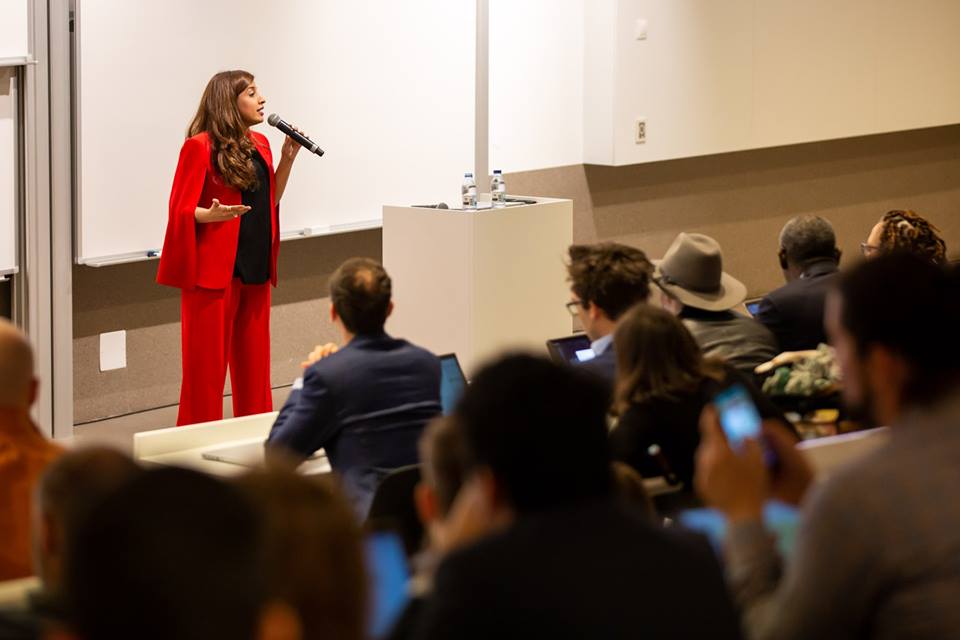
We were dumbfounded by the complexity of the questions we got when we released our first version on the Google Playstore. We received data that girls wanted to talk about the depression and anxiety that resulted from reproductive health problems. And so our bot has become a combination of the two. Raaji the chatbot tries to assess through her intelligence the direction of the human conversation, but a Raaji Baaji (a human volunteer) solves it with empathy and human understanding. But the professionals sometimes miss out on conversations during the night time, so we plan to recruit people from different time zones to fix this issue.
Funding was an even bigger concern. When I started, I didn’t know what I was doing came under the bracket of ‘social entrepreneurship’. In the last two years, I have learned how fundraising for such ventures is challenging. The startup ecosystem is still developing in Pakistan and AI is a technology not well understood. But I have learnt how to attract a team purely on a vision. How to deal with constant uncertainty that comes with entrepreneurship. How to deal with failure which is part and parcel of doing innovative things.
AS: What was the inspiration behind the project?
SK: Raaji is a product of women’s empowerment platform in Pakistan called Aurat Raaj. Aurat Raaj is based on a satirical Urdu film that came out in the 70s that imagined a world where a nuclear explosion led to men’s role switching to women and vice versa. It gave insight to men of that time about how women feel every day in Pakistan. Although it was a box office bomb, fortunately, it became the groundwork for feminist content & films.
Personally, there are multiple instances that had frustrated me as a Pakistani woman and journalist. Having been through the murder of my friend who was a progressive, working mother who had just moved back to Pakistan after living in Singapore. Having gone through a very abusive relationship myself, I knew I needed inspiration and motivation to create a better life for myself and women like me. I needed role models and in search of these role models and in wanting to write about them Aurat Raaj was born.
THIS PLATFORM WAS A WAY TO BRIDGE THE GAP BETWEEN DIFFERENT WOMEN AND BUILD EMPATHY FOR EACH OTHER AND ALL OUR STRUGGLES.
A few months before I started, I was working on an extensive story about Qandeel Baloch for a German magazine. The story had me digging deep into what it meant to be a woman in modern South Asia. Qandeel was a social media star who was honour-killed. I was trying to understand these complex topics such as toxic masculinity, shame, honour and patriarchy.
It made me realise my own privilege as well as my similarities to Qandeel. This platform was a way to bridge the gap between different women and build empathy for each other and all our struggles.
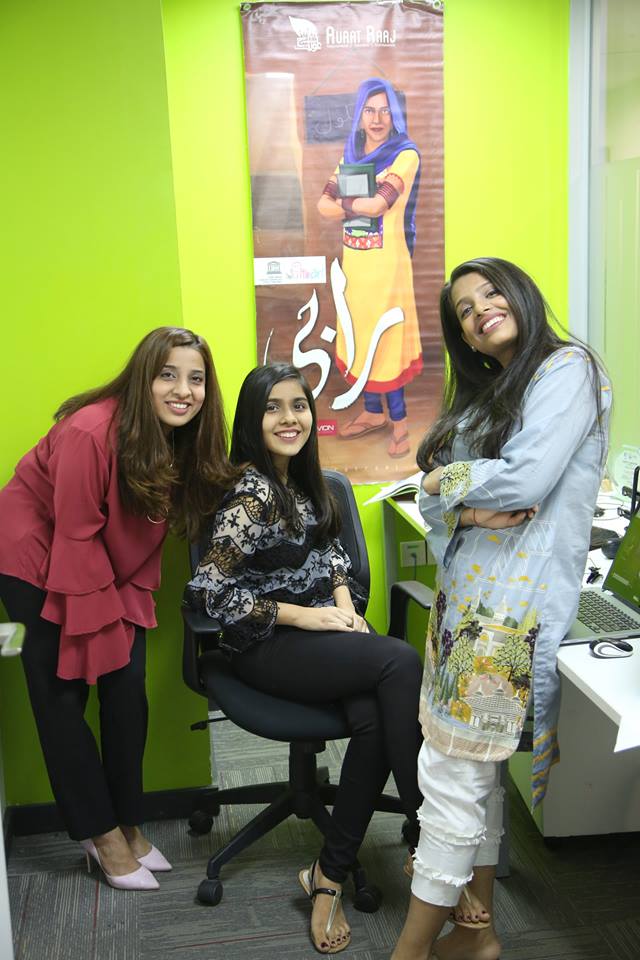
AS: What do you think are the reasons behind such a lack of awareness about health and education amongst Pakistani women?
SK: Multiple reasons. The government lacks focus in developing educational programs for health in general for men and women. Most of us grow up ill-informed about basic health topics believing in myths. Added to this, girls and women lack access to hospitals and clinics if they ever need treatment or advice. Women also lack the mobility to reach such education services.
Culturally, women are shamed for their natural body processes. This starts from the moment they reach puberty all the way to menopause. Parents and teachers in the subcontinent focus on all their attention on providing traditional education but leave all critical information about body changes, puberty, consent, safe intercourse to the internet or a child’s friends. Girls and boys can’t even name their body parts – how can they inform their parents if they notice something different about them?
AS: Your blog mentions that you also create partnerships with schools to educate young girls. What is the initial reaction that you get and how do you deal with that?
SK: We were quite optimistic about walking into any school with our platform but realised quickly that having the support, understanding and review of the community leader where the local school operates will be important going forward. This is why when we screened and tested our chatbot in Tharparker, we had the support of UNESCO and a local partner called Transforming Education Through Arts. Having these organisations supporting our work leads to less pushback from traditional-minded communities, teachers and administrative staff.
GIRLS AND BOYS CAN’T EVEN NAME THEIR BODY PARTS – HOW CAN THEY INFORM THEIR PARENTS IF THEY NOTICE SOMETHING DIFFERENT ABOUT THEM?
We have already tested our chatbot and screened our animated series in parts of Orangi, rural Sindh especially Tharparker, Abdul Rehman Goth and in urban schools of Karachi. The girls loved speaking to a chatbot and found the animated series to be a more palatable way to absorb, understand and ask about difficult topics.
AS: What kind of feedback has the chatbot gotten so far?
SK: Fortunately, the design received support from various organisations. UNICEF Pakistan has provided in 2019 access to 200+ schools in Sindh and Punjab for the app’s testing, piloting and research. It has received prizes from The DO School, The Pollination Project and from UKAID Ilm Ideas. It recently also received a prize from US Consulate Tech Camp for pilots to be conducted in India and Pakistan.
While it received apprehension in Pakistan for its bold approach to innovative sex and reproductive health education, it has been celebrated globally as an exemplary solution for a global problem. The UN World Summit Award called it the Global Champion for 2019 in the category of Learning and Education. It also won the TvE AI Empowering the Future Award at BAFTA
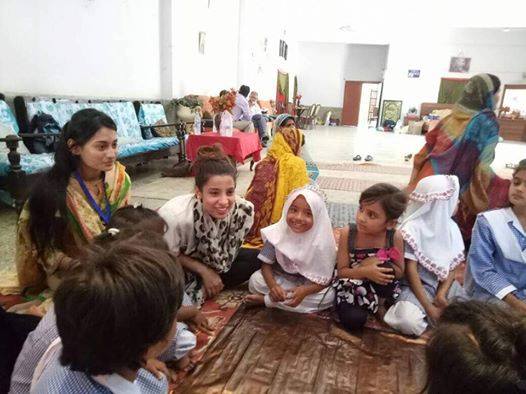
Image source: Aurat Raaj
AS: Your mission mentions that you want to entertain and educate. How do you strike that balance between education and entertainment?
SK: I realised entertainment had to be taken into account because we were trying to target an audience that was much younger than myself. They did not have time to read my long linguistic journalistic pieces. They needed bite-sized information and in an engaging new way. That’s why we tried cartoons and experimented with our chatbot. We have big plans of conversational AI games and one day stepping into empowerment through VR/AR.
AS: What have you planned for the future? Do you think you would want to expand the service to perhaps also cater to adolescent boys? They seem to need a helping hand too, right?
SK: Absolutely. We often joke around that a Raaja is needed to talk to adolescent boys. But for now, we also allow boys to fully test and understand these important topics. Before we launch Raaja, we’ve got to get Raaji in as many hands as possible and scale to other countries as well.
We’ve also recently raised interest in using Raaji for education around financial inclusion which includes important topics like opening up a bank account, saving money, taking business loans or even having your identity card. We see great potential for using the bot for legal awareness around women’s issues. The State Bank of Pakistan is interested in using the chatbot for financial inclusion education. It has been selected for a $10,000 grant by ai to develop content around financial topics.
AS: What message would you like to convey to the readers a large part of whom are women?
SK: I think one of the biggest lessons for me has been the power of self-empowerment. I was able to carve a new career and life for myself from scratch. And this required immense self-belief and self-care.
I have learnt to be good to myself, and believe strongly that regardless of what happens to this platform, I would come out more resilient, intelligent, focused and stronger as a person. Once you are self-empowered, you are able to take more risks. Once you are able to take better care of yourself, physically and mentally, you can give more to your community, beneficiaries, employees, partners, and family. So be kind to yourself and everything else will follow easily.
FII thanks Saba Khalid for taking out time to do the interview.
Featured Image Source: Atlas of the Future
About the author(s)
Avni is a student of Public Policy and a fresh writer. She aspires to understand what the world is doing and then do something of her own.
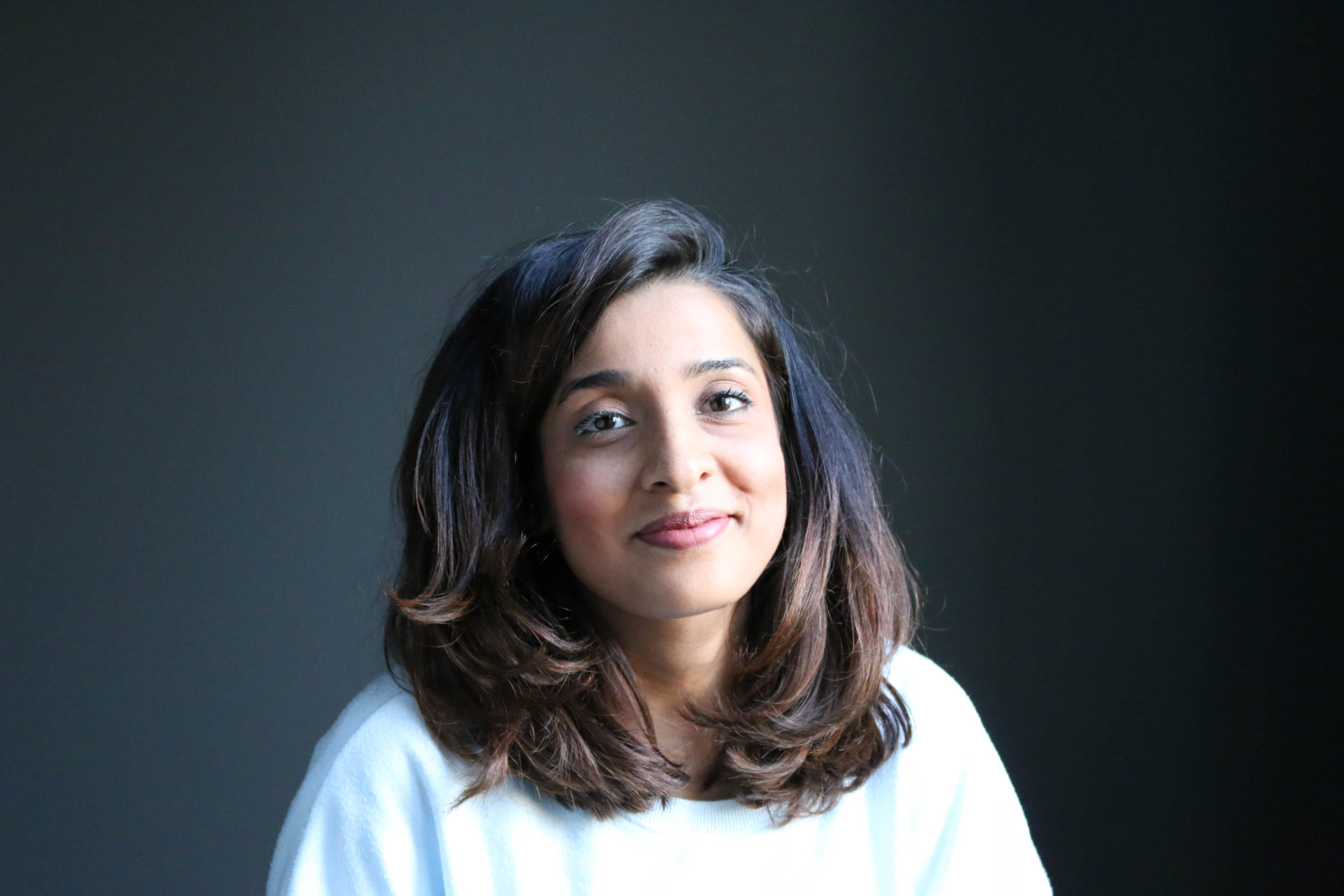
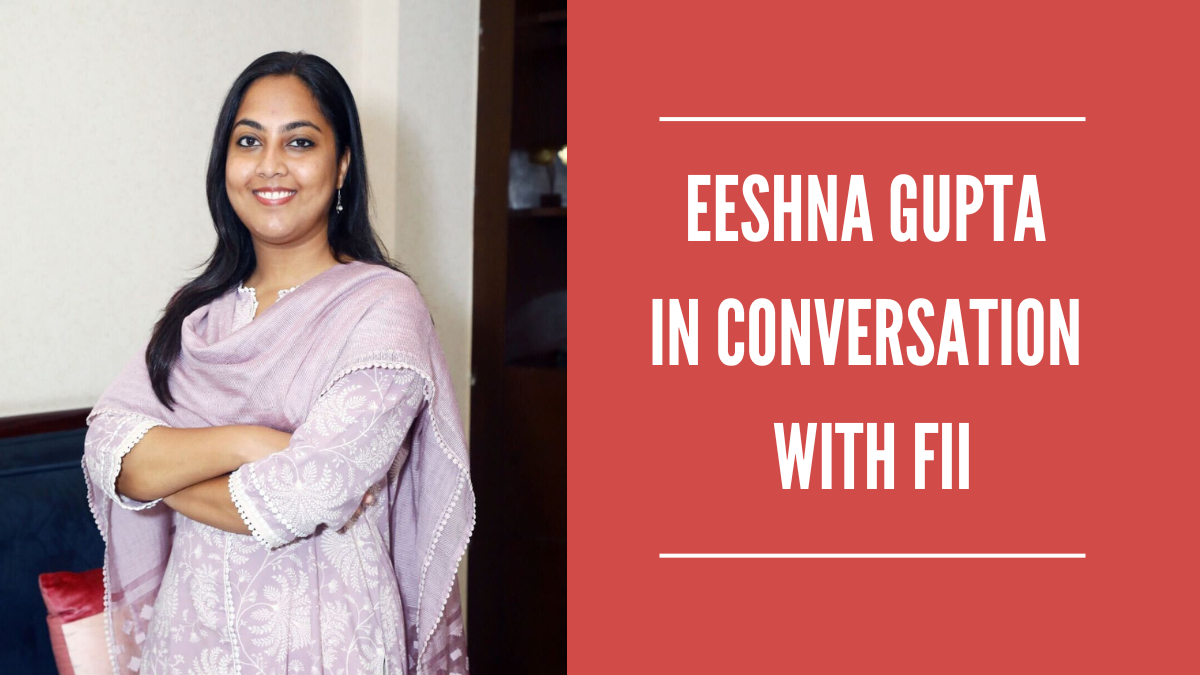
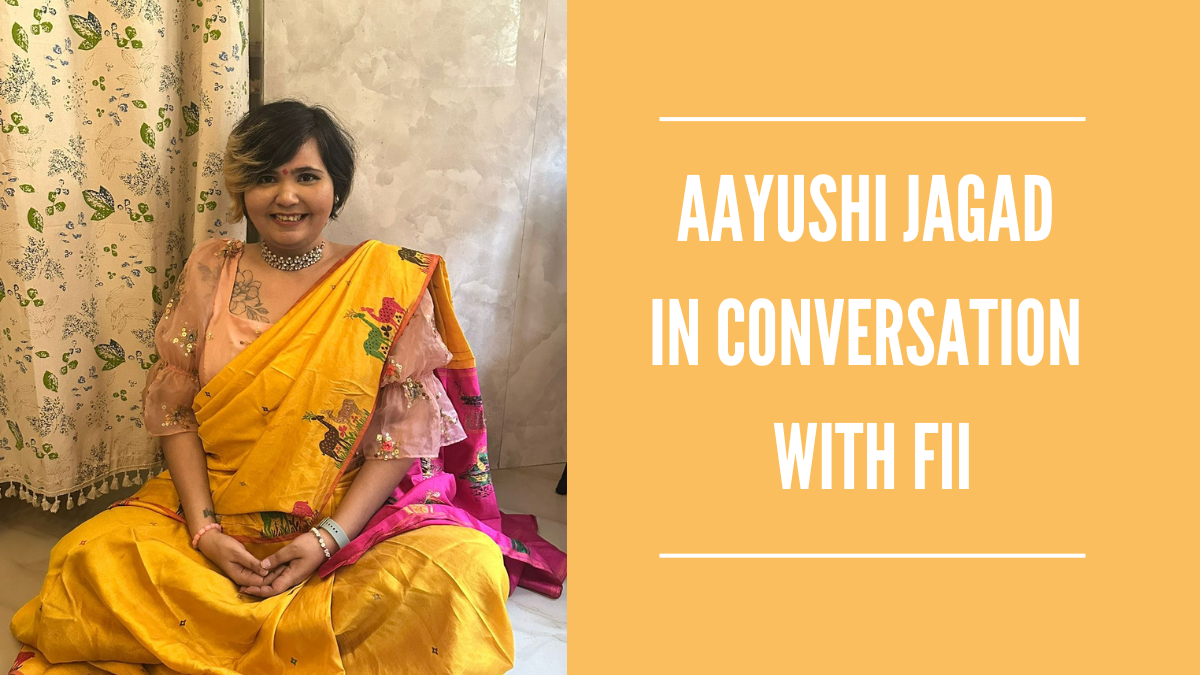


Wow such an interesting chatbot use case. Along with these interesting use-cases, we also need to get better on user experience, more business process integrations, and making the interaction models more mature and intuitive. We have started on the journey at Engati.com, do visit us to give us feedback 🙂
Women can now say our loud their private parts. this is the progress and goal of sex education. congratulations for creating a hyper sexualized generation like the west.